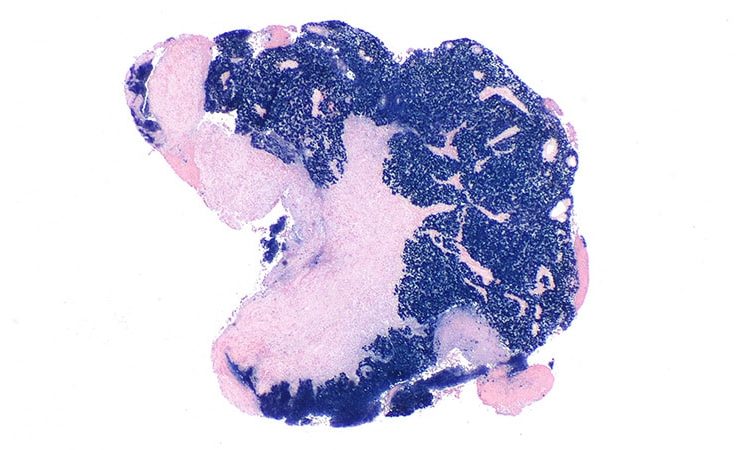TOPLINE:
Adjuvant cisplatin-gemcitabine significantly improves progression-free survival (PFS) over standard cisplatin-fluorouracil in N2-3 nasopharyngeal carcinoma.
METHODOLOGY:
The study included patients aged 18–65 years with untreated, nonkeratinizing, stage T1-4 N2-3 M0 nasopharyngeal carcinoma who were treated in a randomized trial at four cancer centers in China.
Four weeks after upfront chemoradiation therapy, 120 patients received gemcitabine (1 g/m2 intravenously on days 1 and 8) and cisplatin (80 mg/m2 intravenously on day 1) once every 3 weeks for three cycles.
Another 120 patients received fluorouracil (4 g/m2 in continuous intravenous infusion) and cisplatin (80 mg/m2 intravenously on day 1) once every 4 weeks for three cycles.
Nearly 62% of patients in the cisplatin-gemcitabine group completed all three cycles, as did 77% in the cisplatin-fluorouracil arm. The median follow-up was 40 months.
TAKEAWAY:
Overall, 3-year PFS was 83.9% (19 cases of disease progression, 11 deaths) with cisplatin-gemcitabine, vs 71.5% (34 cases of disease progression, seven deaths) with cisplatin-fluorouracil (hazard ratio, 0.54; P = .023).
The 3-year cumulative incidence of locoregional relapse was 2.6% with cisplatin-gemcitabine, vs 13.6% with cisplatin-fluorouracil. The 3-year cumulative incidence of distant metastasis was 10.9%, vs 22.3%.
The most common acute grade 3+ adverse events were leukopenia (52% with cisplatin-gemcitabine, vs 29% with cisplatin-fluorouracil), neutropenia (32% vs 16%), and mucositis (23% vs 28%).
Hearing loss was the most common grade 3+ late adverse event (5% with cisplatin-gemcitabine, vs 9%). One treatment-related death occurred in the cisplatin-gemcitabine arm. The cause of death was septic shock.
IN PRACTICE:
“These results support the potential role of adjuvant therapy with cisplatin-gemcitabine chemotherapy for the treatment of nasopharyngeal carcinoma,” the study authors conclude.
STUDY DETAILS:
The study was led by Li-Ting Liu, MD, of the Sun Yat-sen University Cancer Center, Guangzhou, and was published June 5 in The Lancet Oncology.
LIMITATIONS:
The study was conducted in an endemic area; it is not known whether the results apply elsewhere.
The effect of adjuvant cisplatin-gemcitabine on early overall survival was not significant; longer follow-up is needed.
Baseline PET/CT was not required; as a result, occult distant metastases may have been missed.
Further studies are needed in a more globally diverse population to confirm the findings.
DISCLOSURES:
The study was funded by the National Key Research and Development Program of China, the National Natural Science Foundation of China, and others.
The investigators reported no relevant financial relationships.
M. Alexander Otto is a physician assistant with a master’s degree in medical science and a journalism degree from Newhouse. He is an award-winning medical journalist who worked for several major news outlets before joining Medscape. Alex is also an MIT Knight Science Journalism fellow. Email: [email protected].
For more from Medscape Oncology, join us on Twitter and Facebook.
Source: Read Full Article
